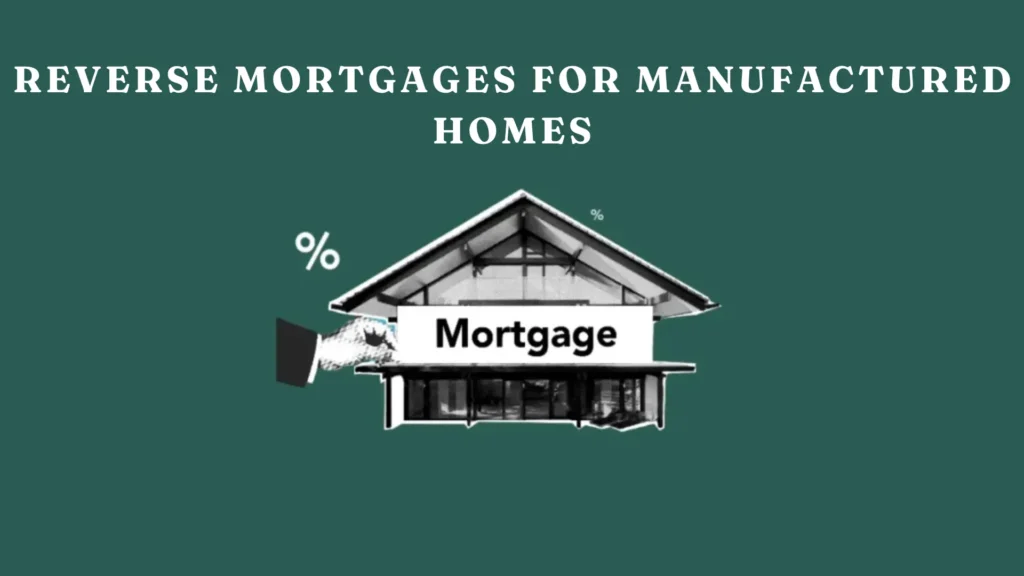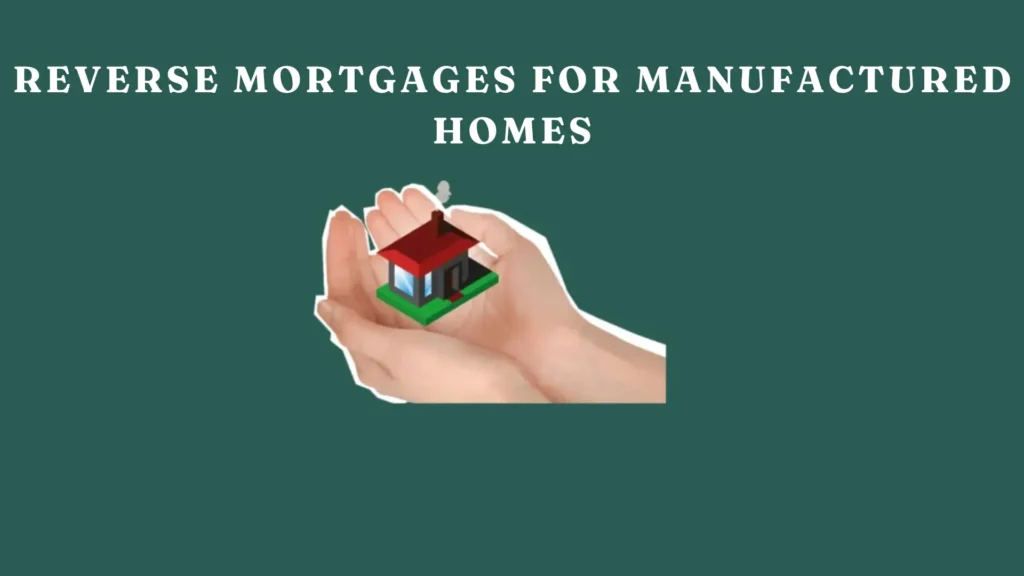Many homeowners who are closer to retirement use this as a way to enhance their financial security without having much decrease in lifestyle. One of the lesser-known financial tools includes a reverse mortgage. The program is highly complex, and especially when dealing with manufactured homes, many people do not find it easy. We shall explore the reverse mortgage for manufactured homes on eligibility, the application process, benefits, and disadvantages.
What is a Reverse Mortgage?
A reverse mortgage is actually a very unusual loan alternative that allows homeowners who are at least 62 years of age to convert some of the equity in their home to cash without having to sell the property. In a reverse mortgage, instead of paying the mortgage monthly, it will be repaid when the house is sold, the homeowner moves out, or the homeowner dies. The most common reverse mortgage is HECM, which is federally insured and offers some protection to the borrower.

Understanding Manufactured Homes
Manufactured homes are better referred to as mobile homes. These homes are factory-built houses and are transported to a location. Although they will save the homeowner money, manufactured homes are very different, and there are a great many specific distinctions, affecting how financing works, such as reverse mortgages. Among the things you may need to know about manufactured homes is the following:
Construction Standards:
All homes that are built after June 15, 1976, must meet HUD Code standards, which spell out safety and durability.
Affordability and Accessibility:
Manufactured houses normally cost less compared to site-built houses thus tend to be more used in low-to-moderate income families.
Community Living:
Most manufactured homes lie within communities, but can lead to denial or lack of eligibility for landowning loans.
Requirements To Be Eligible for Manufactured Home Reverse Mortgaging
The key components which determine the possibility to take a reverse mortgage with manufactured homes include,
Ownership:
The owner of the manufactured home must wholly and absolutely own it, free and clear, or carry a low mortgage balance on the home that can be paid off with the proceeds of the loan.
Permanent Foundation: The home needs to be placed on a permanent foundation and must meet all HUD specifications.
Condition: The home must be of good condition and meet minimum safety and structural requirements.
The appraised value of the house must fall within the guidelines set by FHA, which might differ from one place to another and according to market conditions.
Also Check: Reverse Mortgage in Florida – Unlock Home Equity Today!
Also Check: Unlock Cash with a Reverse Mortgage on Mobile Home
Also Check: Reverse Mortgage Nightmares – What You Need to Know Now!
Also Check: Expert Reverse Mortgage Attorney – Secure Financial Future
Benefits of Reverse Mortgage for Manufactured Homes
Liquid cash: Funds are available for all needs, including medical expenses, home improvement, and day-to-day living costs without the burden of a regular monthly mortgage payment.
Ownership Rights: The title owners remain the owners of their house during the duration of the loan, and they are in complete ownership of their house.
Supplemental Retirement Income: The money generated can serve as a very good supplement to retirement income, making it possible for people to retire without having financial burdens.
Tax-Exempt Funds: Funds raised in reverse mortgages are classified as non-income funds, which do not need to be taxed.
Important Factors of Reverse Mortgage on Manufactured Homes
Reverse mortgages might seem advantageous, but there are important factors that come along with them:
Higher Interest Rates: Since manufactured homes are considered relatively riskier, they charge relatively higher interest rates on these mortgages than the conventional one.
Impact on Beneficiaries: Once the homeowner is dead, his heirs have to pay the loan or sell the home to clear the mortgage; this affects the inheritance.
Loan Amount Limits: The appraised value for manufactured homes is typically smaller than for site-built houses and can, therefore, limit the available funds.
Costs and Fees: Borrowers will have to account for costs such as origination fees, closing fees, and mortgage insurance that can negate some or all of the money withdrawn from the property.
Reverse Mortgages for Manufactured Homes
There are four reverse mortgage types:
Home Equity Conversion Mortgage (HECM): This government-backed loan offers significant consumer protection but requires the borrowers to be counselled so that they are better aware of their responsibilities.
Proprietary Reverse Mortgages: Offered by private lenders, these may offer higher borrowing limits and easier terms but often come with higher fees and interest rates.
Single-Purpose Reverse Mortgages: Loans are usually granted by a non-profit or state/local government for special purposes: home repair, property taxes, etc.

Applying for a Reverse Mortgage on a Manufactured Home
Eligibility Analysis: Ensure that your manufactured home is under HUD and permanently installed on a foundation. Seek the services of a professional appraiser or home inspector to appraise the property.
Consultation and Counseling: An HUD-approved counsellor will help guide you through a counselling session that assists you in comprehending what really the reverse mortgage implications on your financial goals would hold.
Choosing a Lender: You should perform extensive research and compare a few specific lenders who specifically deal in a reverse mortgage for manufactured homes. Go ahead with those who also carry good reviews, the fee is transparent and pretty cheap.
Application Process: In the loan application, may require income proof, evidence of property ownership, as well as the existing information on mortgage.
Loan disbursement options: Determine which way you want to access the funds, whether is through lump sum, through monthly payments, or credit line.
Conclusion:
A reverse mortgage helps many seniors in manufactured houses gain much-needed breathing room with the relief that, instead of making monthly payments as one would do under the regular mortgage, it siphons from their house to their pocket without such distress. But then comes along the importance of completely comprehending the implications and all costs and requirements involved. Similarly, like any financial move, financial advisors and/or housing counsellors are of excellent assistance to help one achieve their long-term goal based on their choice of money matters.
This would mean careful evaluation of all given options, and through that, seniors are in a position to find the best solutions to unique situations while they are alive during retirement years with considerable peace of mind and financial security.
